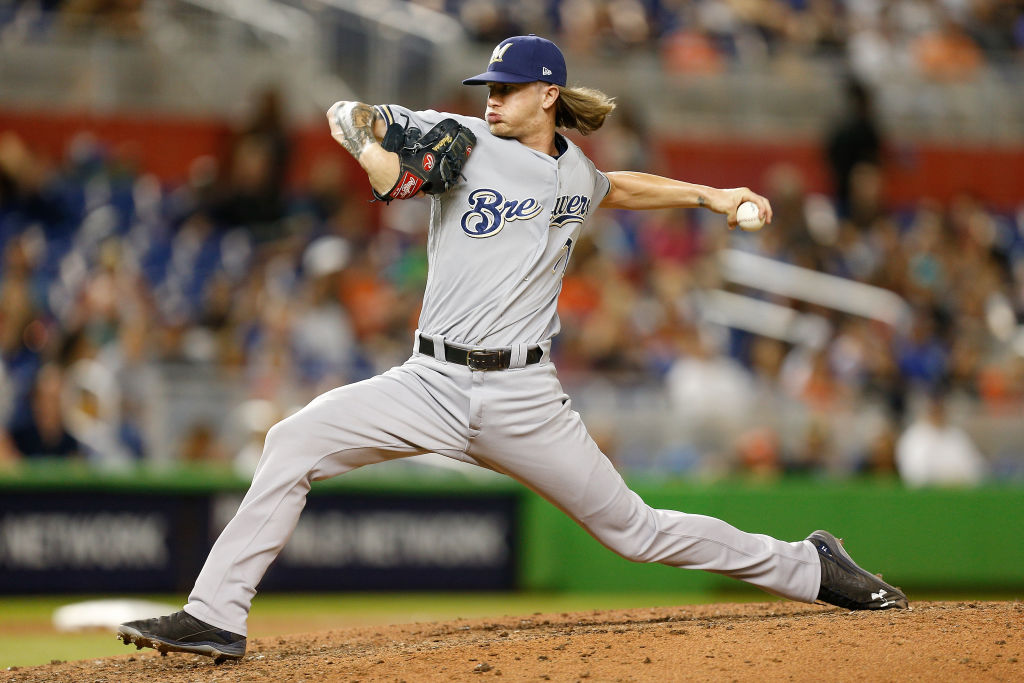Baseball is the best of all sports. It’s great because it’s timeless — it exists in a space beyond time. Unlike other major sports, baseball requires no clock. It’s a ballet of set pieces — at-bats, walks, strikes, balls — and burst of motion. The grace of a swing, the artistry of a double play — all of these don’t run to the ceaseless demands of a clock.
It’s great because it’s a balance between individual achievement and team play. We know the names of the individual greats, but it requires a team of great individuals to win the World Series. Baseball is about the three-run home run, but it’s also about whether your fifth-place hitter can lay down a bunt to move the runner into scoring position.
It’s great because the tension of a face-off without violence can be incredible. A flamethrowing pitcher facing down a slugger with the game on the line; the junkballing reliever trying to struggle out of a bases loaded jam with a one-run lead. Baseball is like life: placidity punctuated by stress.
Baseball is great because it is classic — because we can measure the numerical achievements of past players against current players, speculate about whether Babe Ruth would have been able to compete in today’s game, discuss endlessly with friends and parents and children who the best centerfielder of all time was (for the record, Ty Cobb).
Baseball is great, too, because baseball’s history is tied to the social history of the United States. Babe Ruth goes hand in hand with the roaring 1920s; Joe DiMaggio and Ted Williams take us back to the second world war; and of course, Jackie Robinson reminds us of the goodness of human beings and the courage of heroes.
But baseball is under fire — largely for political reasons. Michael Powell of the Globe and Mail says that baseball is simply too white, despite the fact that as of 2017, 32 per cent of players were Latino, and 43 per cent weren’t white. There has been a significant decline in the black population of Major League Baseball, but it’s difficult to attribute that to racism. More likely, that decline is a result of the growth of basketball and football, which have drawn top athletic talent away from baseball; or the increasing cost of playing youth baseball; or the fact that baseball is far better in person than on television, making it expensive to follow. There are also studies that suggest that top-tier baseball players are often trained by their fathers — that having a catch with dad is an imperative part of baseball development, and so children without fathers in the home are less likely to succeed in baseball. Out-of-wedlock birth is strongly correlated with the drop in black players in Major League Baseball.
According to Powell, however, the whiteness of baseball is indeed more broadly linked to racism. In this theory, black players don’t want to play baseball because baseball crowds are white, and thus more racist than crowds in other sports. As an example of this racism, Powell cites the case of Josh Hader, a 24-year-old relief pitcher who tweeted out some nasty and racist sentiments when he was 17. After apologising profusely, Hader was welcomed back to the mound with a standing ovation. Powell suggests that this welcome was related to the crowd’s subtle approval for his old tweets — that if a black player had misbehaved in similar fashion, he would meet with different treatment. But that’s obviously ridiculous: Barry Bonds, who is black, received three standing ovations on his return from the disabled list in 2005, despite being dogged by steroid allegations. White former Atlanta Braves All-Star closer John Rocker’s career never recovered from making racist comments in Sports Illustrated, by contrast. Hader was treated with care by the fans because they wanted to signal that they weren’t going to penalise him for tweets written when he was a high school junior so long as he repented.
Then there are the allegations that baseball is too white because baseball treasures tradition — that the sport is too steeped in its fuddy-duddy ways. That was the case made by Jay Caspian Kang in the New York Times in 2016, who argued that baseball ‘represented a very particular, buttoned-up version of American identity, and players who deviated from it were often subject to harsh criticism.’ What, though, does that have to do with race? Ask any baseball fan my age, and their favourite player is likely to be Ken Griffey Jr, who famously wore his baseball hat backwards, as Kang acknowledges (for the record, my favourite player was Ozzie Guillen, who once sat me on his lap when I was about four years old for a photo at old Comiskey). In fact, it’s that constant struggle between the rebellious stars who seek to play the game their own way (see Reggie Jackson in the 1970s or Yasiel Puig today) and the baseball higher-ups who want to guard the game’s traditions that drive much of baseball’s drama.
Now, it’s certainly true that there are demographic differences between the fan bases of particular sports. Nearly half of the NBA audience is black; 83 per cent of baseball fans are white. But that doesn’t make baseball ‘unbearably white’ any more than the NBA is ‘unbearably black’.
In truth, the press treatment of baseball says more about the press than it does about baseball. Articles about the problems of baseball’s supposed whiteness are commonplace; we’ll hear about the Hader incident routinely. But nobody remembers that Latrell Sprewell received a standing ovation from New York Knicks fans after returning from suspension for nearly strangling his Denver Nuggets coach; nobody seems to care much that the NBA is three-quarters black, or that the NFL is 70 per cent black. And that’s totally appropriate — why should it matter that people of different races seem to prefer different sports at different rates? More importantly, why is that a sign of racism?
Baseball is a wonderful sport; there’s little I enjoy more than attending a game with my dad. It is a uniquely American pastime because of its history and its traditions — and because of the conflicts between innovation and tradition that characterise the American story. It’s certainly not a great sport because it’s white.


















